Marble bust of the great Athenian general, orator, and statesman Pericles (ca. 495-429 BCE), depicted here wearing a Corinthian helmet. Pericles is credited by many historians, notably Thucydides, with guiding 5th-century BCE Athens to its peak of greatness. Among his achievements were the ambitious building program on the Parthenon and the transformation of the Delian League, originally formed to combat the Persians, into a tribute-paying Athenian empire. However, his reputation was not without blemish. His political opponents accused him of aiming at tyranny, and his enforcement of the Megarian Decree—which barred Sparta’s ally Megara from all Athenian harbors and was effectively an act of economic warfare—may have been the immediate cause of the Peloponnesian War. His death from the plague plunged Athens into crisis and led to a succession of populist leaders such as Cleon and Hyperbolus, whose far more aggressive foreign policies ultimately proved disastrous for Athens. Though the city would survive and even make a second attempt at empire-building, it never regained the unchallenged supremacy it had enjoyed during the Periclean period.
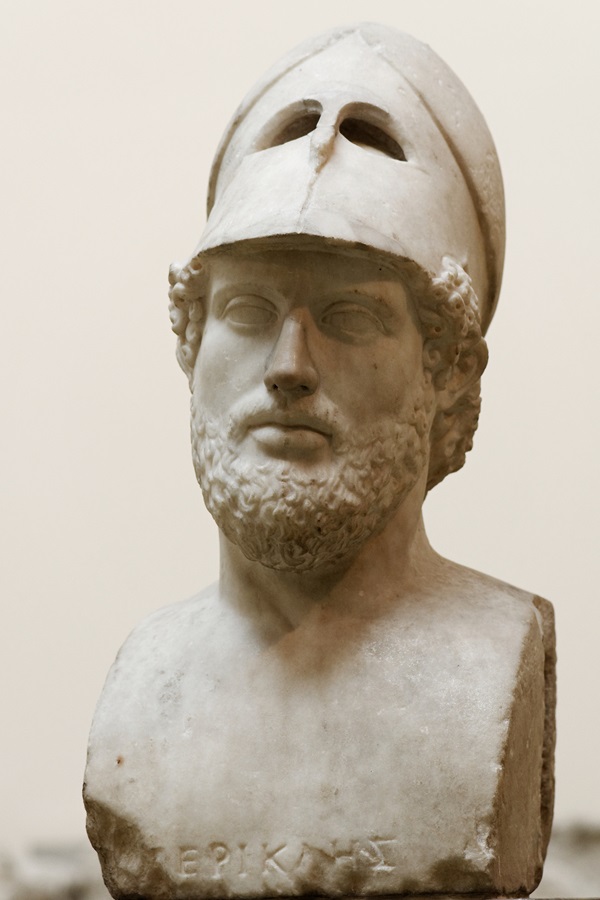
Roman copy of uncertain date after a lost Greek original. Now in the Museo Chiaramonti, Vatican City.
Introduction
In the illustrious city of ancient Greece, around 495 BCE, a child was born in Athens. This child, named Pericles, would grow up to become one of the greatest statesmen of his time, contributing significantly to the comprehensive development of both Athenian democracy and the Athenian empire. His story is one of power, wisdom, and decisions that shaped an entire era.
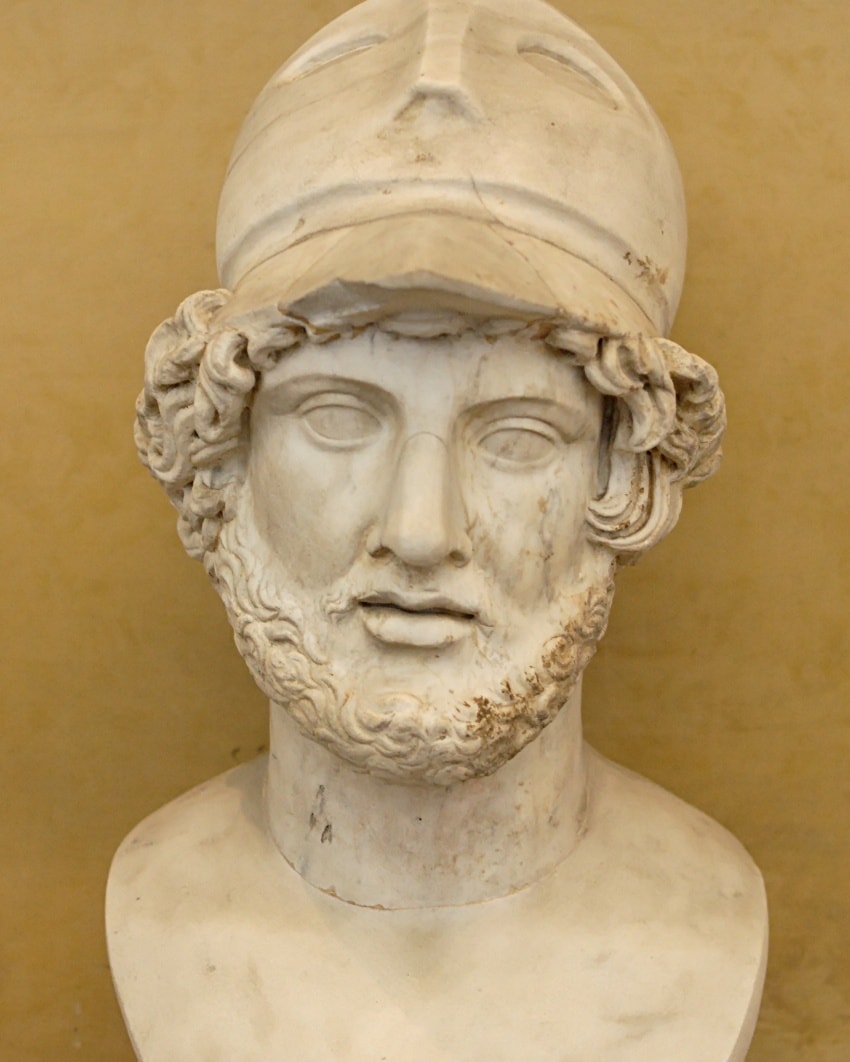
Early Life and Education
Pericles was born into an aristocratic family. His father, Xanthippus, began his political career through a dynastic marriage but later turned to legal prosecution as a political tool. Pericles’ mother, Agariste, from the Alcmaeonid family, provided him with both noble connections and a religious curse occasionally used against him by his enemies.
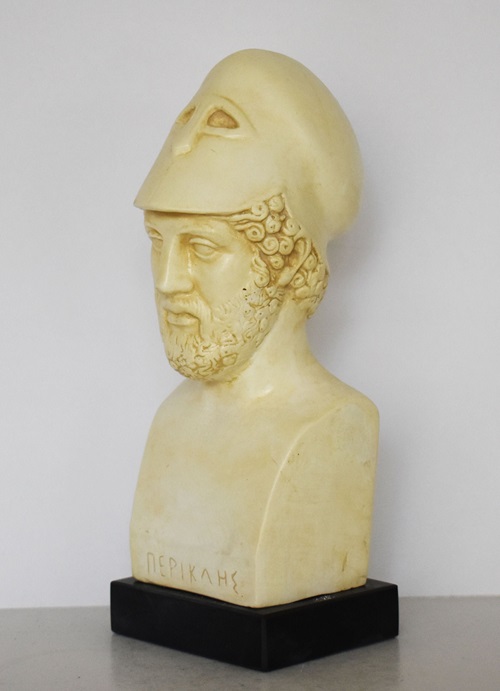
From a young age, Pericles received an exceptional education. His most notable early teacher was Damon, a musical theorist whose influence extended beyond music to various other fields. Throughout his life, Pericles also learned from great philosophers like Zeno and Anaxagoras, who taught him to remain calm in the face of adversity and to question supposed divine phenomena.
Political Career
The first significant milestone in Pericles’ career occurred in 472 BCE when he sponsored Aeschylus’ “Persian Trilogy.” However, it wasn’t until 463 BCE that he truly entered the political arena by prosecuting General Cimon, accusing him of missing an opportunity to conquer Macedonia. Although he failed, this prosecution established Pericles’ expansionist stance.
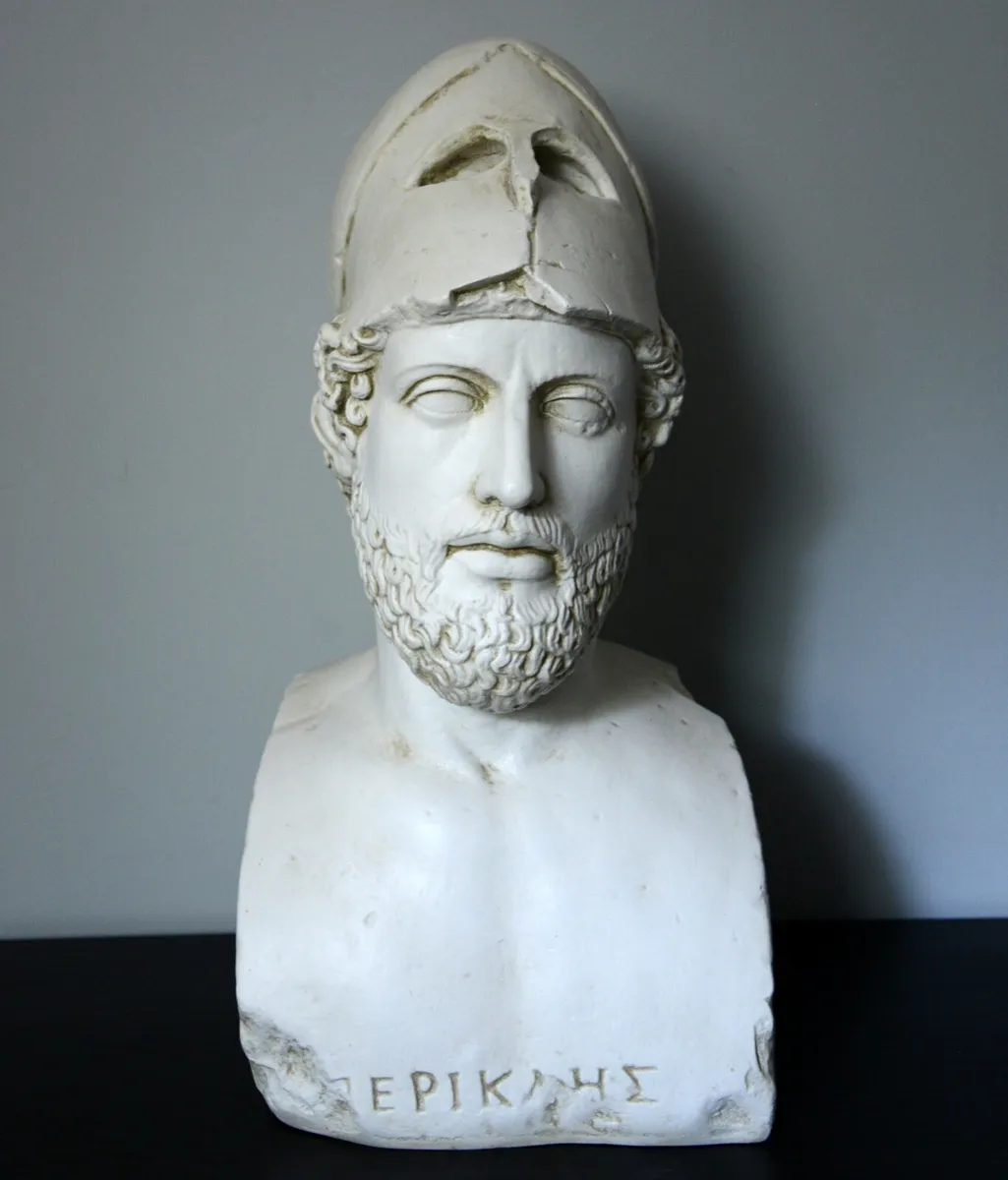
In 451 or 450 BCE, Pericles passed a law restricting Athenian citizenship to those born of Athenian parents on both sides. This controversial law solidified his power and protected Athens’ social structure from the influence of immigrants.
Architectural and Cultural Achievements
One of Pericles’ greatest achievements was the construction of the Acropolis, which began in 447 BCE. He initiated grand architectural projects such as the Parthenon and the gold and ivory statue of Athena. These constructions not only honored the gods but also showcased Athens’ power and wealth.
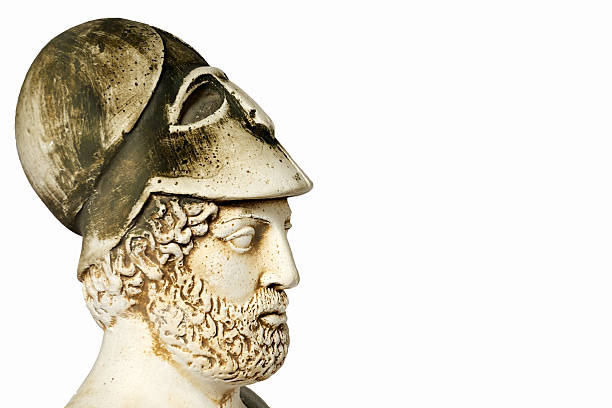
Conflicts and Wars
Under Pericles’ leadership, Athens faced numerous conflicts and wars. He led the city through revolts by its allies and expanded Athenian control. However, revolts by states like Boeotia and Megara challenged his leadership abilities.
Strategic Policies
Pericles was a brilliant strategist, especially in utilizing Athens’ naval strength. He developed a strategy of retreating behind the Long Walls to avoid direct confrontation with the Spartan army, relying on the fleet to maintain food supplies and protect the empire. However, this strategy faced challenges, particularly when a plague struck the overcrowded city, taking many lives.
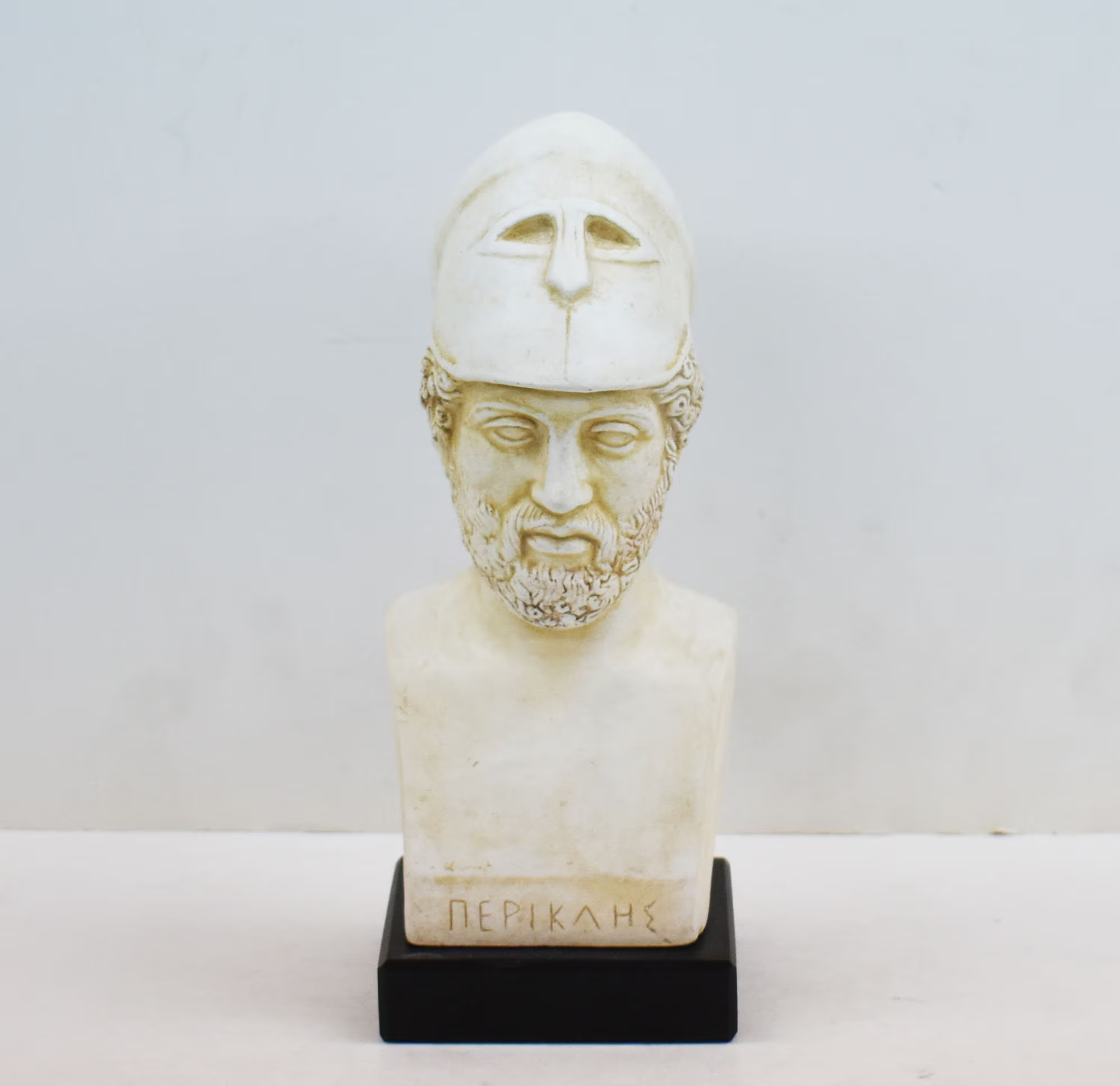
End of Life
Eventually, Pericles faced criticism and personal loss. He was deposed and fined, but later re-elected. Before his death in autumn 429 BCE, he delivered a famous funeral oration, emphasizing the sacrifice of those who died protecting Athenian way of life. Pericles’ vision of Athens as “an education to Greece” was clear and widely recognized.
Conclusion
Pericles was not only a brilliant leader but also a symbol of wisdom and determination. His life and career shaped Athens and left a profound legacy in history. The story of Pericles is about a man who overcame numerous challenges to make Athens the cultural and political center of Greece, a legacy that still echoes today.




